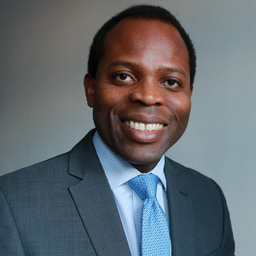Economics, Accounting and Finance
MPhil or PhD
Key facts
Start dates
June 2025 / September 2025 / January 2026
Application deadline
Applications by international candidates for on-campus full-time research degrees must be received by:
- 31 January 2025 (June entry)
- 31 May 2025 (September entry)
- 30 September 2025 (January entry)
Applications by home and international candidates for on-campus distance learning candidates must be received in full by:
- 31st March 2025 (June entry)
- 30 June 2025 (September entry) - only entry for Doctor of Coaching and Mentoring
- 31 September 2025 (January entry)
Course length
Full time: minimum 3 years
Part time: minimum 4 years
School(s)
Funding status
Self-funded
Overview
Our research in Economics, Accounting and Finance encompasses work on:
- Understanding historical trends by studying the past
- Interpreting today’s major challenges and predicting trends in the future
- The study of scarcity and decision-making that examines how people can use limited resources and respond to incentives
- The study of poverty and wealth and finance (such as inclusive finance or the role of financial markets on economic development) as well as corporate governance and responsible accounting
Our PhD research programme will develop your knowledge of advanced economic theory and econometric methods. Specialist training courses are provided enabling you to produce innovative research and pioneering research papers. We provide expert academic support and supervision alongside a commitment to your economics research.
The distance learning mode involves regular online sessions and intensive 3-5 day blocks of sessions each semester. You can attend the intensive blocks via online synchronous links or by coming to campus (using visitor visas where necessary to visit the UK).

Degree routes
All students enrol as probationer research students. The degree for which you register will depend on your academic qualifications and research experience. During the first year you will formally register your research proposal for one of the below routes.
MPhil
If you undertake an MPhil you will:
- critically investigate and evaluate an approved topic
- demonstrate understanding of research methods appropriate to the chosen field
- present and defend a substantial thesis by oral examination.
Thesis: 50,000 words
Length of study: Full-time: 2-3 years. Part-time: 3-4 years.
PhD
The criteria for a PhD are similar to those for an MPhil, with the key difference that:
- the research carried out will result in an independent and original contribution to knowledge.
Thesis: 100,000 words
Length of study: Full-time: 3-4 years. Part-time: 4-6 years.
Why Oxford Brookes University?
You will benefit from:
- a supervisory team of two to three supervisors who can provide the best combination of expertise to support your work
- training courses in research methods provided by the Business School and wider University
- regular seminars and learning activities at department, school and university level
- experience of presenting work to different audiences
- opportunities to network and discuss your work with staff and fellow students.
- engage with our entrepreneurs in residence and visiting entrepreneurs
- Work with local businesses
- collaborative opportunities, including receiving industrial funding and sponsorship.
You will be supported in developing and sharing your expertise through:
- opportunities to present at internal seminars and conferences
- support in attending, and ultimately presenting at external conferences (some financial assistance is available)
- training as an Associate Lecturer and the opportunity to engage in teaching activity on appropriate modules offered by the Business School.
Learning and assessment
While every candidate’s exact experience will vary according to their particular discipline, topic and methodology, there are a number of common elements that all students will undertake:
- critically investigating and evaluating an approved topic
- undertaking an analytical review of the existing literature in your topic area to set the theoretical context for your work and help demonstrate the gap in knowledge you will address
- developing and then implementing a rigorous and appropriate methodology for researching your topic
- demonstrating that your research conforms to all relevant ethical codes of practice
- extensive primary field research, analysis and evaluation.
Your progression will be monitored through an annual process undertaken at the end of each academic year, and through two key progression points after approximately six months and eighteen months of study respectively.

Students

Amina Mahmood Yakubu
Gender and Education: An Economic Analysis of Returns to Education in Nigeria

Reginald Kadzutu
Impact of Exchange rate regime on the sensitivity of expected return to macro-economic factors in the APT framework

Wachuku Johnson
The effect of the corporate governance framework on UK banks

Samira Issa
Stakeholder Engagement and the UK Corporate Governance Code
How to apply
Entry requirements
Applicants should have a good honours degree and a good master's degree at merit level or above that includes a thesis component. Applicants with equivalent experience will be considered.
Application process
- Complete your research proposal
- Gather your supporting documents (listed below)
- Make a direct application.
When applying for this programme of study please upload all of the required supporting documents listed below to the online application portal. If you have any difficulty completing your application, please visit our Frequently Asked Questions page.
Supporting documents
We require the following supporting documents for every candidate making an application to study a research degree:
- copies of your previous degree transcripts and certificates (both undergraduate and postgraduate)
- a scan of your passport
- two academic references
- a 2,000-word Research Topic Proposal
- evidence of funding (we require evidence of personal funds or a letter from a funder if you will be sponsored)
- international students must also provide an English Language Certificate with an IELTS score of at least 7.0.
We suggest merging your supporting documents into a single PDF file. Please note there are options for you to submit your two references.
Tuition fees
Tuition fees
Fees quoted are for the first year only. If you are studying a course that lasts longer than one year, your fees will increase each year.
For International fees the following factors will be taken into account by the University when it is setting the annual fees: inflationary measures such as the retail price indices, projected increases in University costs, changes in the level of funding received from Government sources, admissions statistics and access considerations including the availability of student support.
Home fees are set by UK Research and Innovation (UKRI) and are released approximately five months before the start of each academic year.
If you have any questions about fees, get in touch with the Research Degrees Team at rdt-researchdegrees@brookes.ac.uk.
How and when to pay
Tuition fee instalments for the semester are due by the Monday of week 1 of each semester. Students are not liable for full fees for that semester if they leave before week 4. If the leaving date is after week 4, full fees for the semester are payable.
- For information on payment methods please see our Make a Payment page.
- For information about refunds please visit our Refund policy page
Compulsory costs
| Additional costs | Amount (£) |
|---|---|
Continuation fee The continuation fee, where it is payable is compulsory, but not applicable to Masters by research or PhD by Published Work, detailed as follows:
|
£1455 |
Optional costs
| Additional costs | Amount (£) |
|---|---|
It’s your responsibility to cover print / binding costs where coursework submission is required. Please note that a lot of the coursework is now submitted online. |
From £30 |
| You may choose to purchase books to support your studies. Many books on our reading lists are available via the Library, or can be purchased secondhand. | £20-60 per book |
Accommodation fees in Brookes Letting (most do not include bills) |
£94-265 per week |
Accommodation fees in university halls (bills included, excluding laundry costs) |
£135-200 per week |
Graduation costs include tickets, gowning and photography. Gowns are not compulsory but typically students do hire robes, starting at £41. |
Typically £0-200 |
Students are responsible for their own travel to and from university for classes. For the 2025/26 academic year, the University is introducing an alternative subsidised travel offer for all students with further information on our Travel webpages. |
From £10 |
Resubmission fees If following viva, examiners recommend that a student is required to revise and resubmit their thesis for re-examination, they must pay the resubmission fee for the duration of that period. |
£1455 |
Funding your studies
Financial support and scholarships
Featured funding opportunities available for this course.
